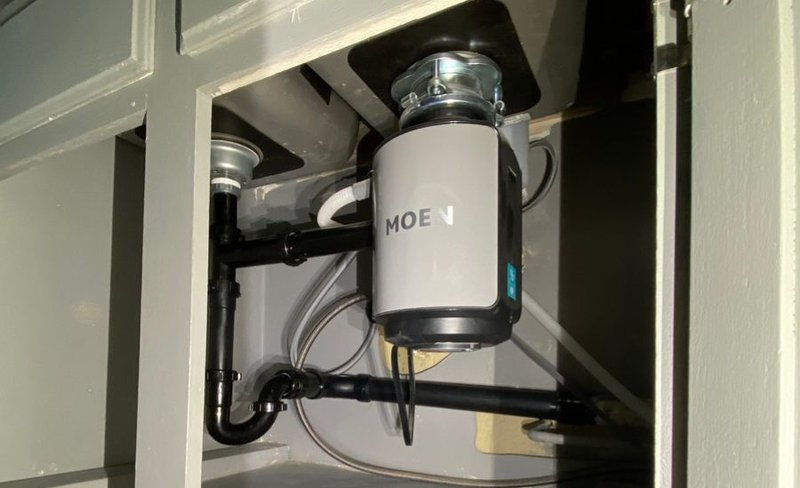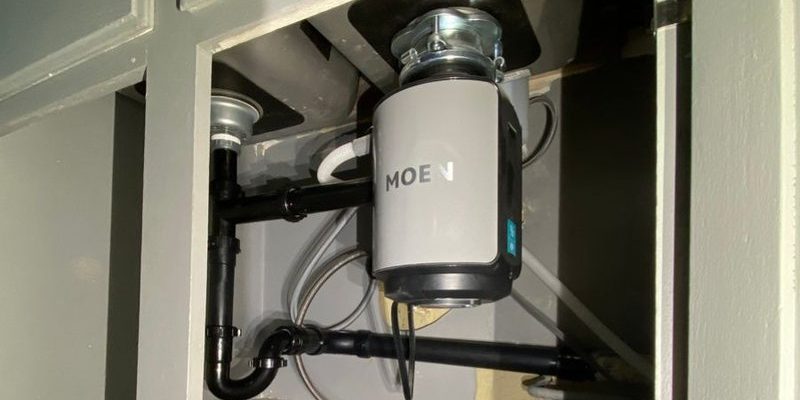
Here’s the deal: Error codes are like the subtle warning lights in your car. They might not spell disaster right away, but they signal potential problems that need attention. When your Moen disposal displays an error code OE, it’s basically saying, “Hey, there’s something not quite right here!” Ignoring it might seem convenient in the short term, but it can lead to bigger headaches down the road, much like ignoring a check engine light could result in a breakdown. Let’s break it down and understand why this little nudge from your disposal should not be ignored.
Understanding the Moen Error Code OE
When your Moen displays an error code OE, it’s indicative of an overload error. Think of it like when you try to do too many things at once and end up feeling overwhelmed. Your disposal is experiencing the same overload condition. This occurs when something is jamming or causing it to use more power than usual. The disposal has a built-in self-protection mechanism that shuts it down to prevent overheating or damage.
You might be asking, “What can cause this overload?” Well, the reasons are often simple. It could be that there’s a solid object stuck inside, or maybe you’ve put in something too fibrous, like potato peels or celery stalks, which can tangle around the blades. Overloading can also happen if there are an excessive amount of food scraps at once, causing the motor to strain. It’s like trying to shove too much food in your mouth at one time — your disposal just can’t handle it all at once!
So, what are the next steps? It’s crucial to address the root of the problem. Unplug the disposal and ensure there are no large or ungrindable items inside. Wait a few minutes, check for obstructions, and reset the disposal. If it’s still not working, you might need to call in a professional. Ignoring the code could lead to motor burnout or more expensive repairs, so it’s better to tackle it early.
Potential Consequences of Ignoring the OE Code
Ignoring the OE error code might seem harmless at first, but let’s look at what could happen. One of the most immediate consequences is the risk of permanent damage to your garbage disposal. Think of it like ignoring a small leak in your car’s fluid line. At first, everything seems fine, but over time, the fluid runs out, and suddenly you’re facing a much larger issue.
The overload indicates your disposal is under duress. Continuously ignoring this strain could burn out the motor completely, leading to a non-functional unit. This would mean a full replacement rather than a simple fix. Imagine that annoying cost and hassle! Additionally, a consistently overloaded and struggling motor can trip your circuit breaker repeatedly, causing electrical issues that could affect other appliances or even the overall wiring of your kitchen.
There’s also the hygiene factor to consider. A malfunctioning disposal that’s not chopping up food properly can lead to clogs. Stagnant water and old food scraps can lead to unpleasant odors and even attract unwanted pests. That’s definitely not something you want lingering in your kitchen! It’s clear that facing the OE code head-on is the best course of action to avoid these nasty consequences.
Preventative Measures to Avoid Future Errors
Prevention is always better than a cure, right? To avoid seeing that pesky OE code again, there are simple habits you can adopt to ensure your Moen garbage disposal operates smoothly. First things first, remember to only dispose of appropriate waste. Large bones, fibrous vegetables, and non-food items don’t belong in your disposal. Think of your disposal as having a delicate digestive system — it can only handle certain ‘foods.’
Next, feed the disposal slowly. Like savoring a meal instead of gobbling it up, give your disposal time to properly grind and clear each batch of waste. Running cold water before, during, and after using the disposal helps move everything along, much like washing down a meal with a glass of water. This not only supports efficient operation but also helps clear any minor debris caught in the blades.
Regular maintenance is also key. Every week or two, clean your disposal by grinding small ice cubes and a bit of vinegar or lemon peels. This not only keeps it fresh but also sharpens the blades over time. You could say it’s the equivalent of flossing for your garbage disposal! Regular checks and maintenance are your best defense against future error codes, ensuring smooth operation for years to come.
What to Do If the Problem Persists
So you’ve tried everything and the OE code persists. What now? It’s time to consider reaching out for professional help. Just like you’d consult a mechanic for persistent car troubles, a professional can diagnose complex issues beyond DIY fixes. They have the right tools and expertise to handle electrical components and internal mechanics safely and efficiently.
It’s also worth checking if your unit is still under warranty. Moen offers warranties on their products, and if your unit is still covered, you could have it repaired or replaced at little to no cost. Always keep product documents and purchase receipts handy for such situations. They’re your disposal’s birth certificate, so to speak.
In the meantime, while waiting for professional assessment, avoid using the disposal to prevent further damage. Use it as a reminder of how important it is to address error codes promptly. With the insights gained from this experience, you’ll be better prepared to tackle any future hiccups with your garbage disposal – ensuring a smoother, worry-free kitchen routine.
